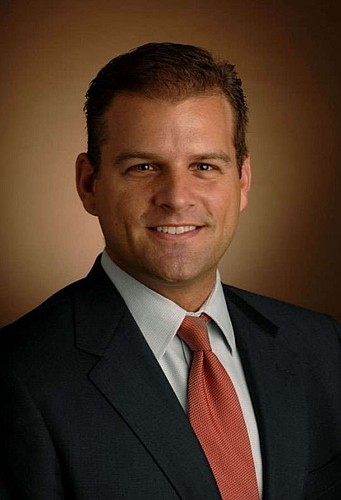
A Duval County grand jury described Public Defender Matt Shirk as a failed leader who put the needs of his troubled private life over those of his office after being accused of having inappropriate relationships with female employees.
The grand jurors also criticized Shirk for what they called “a far more serious concern,” accusing him of sharing privileged information in the Cristian Fernandez case with a documentary film crew.
There were no indictments in the findings unsealed Tuesday, but the panel recommended several ways for Shirk to leave office and possibly be disciplined.
First was the grand jurors’ call for Shirk to immediately resign, which he said he will not do.
They also asked Gov. Rick Scott to consider removing Shirk from office. A Scott spokeswoman said because there were no criminal charges in the case, the issue should be decided by voters. Shirk’s term expires in 2016.
The jurors also asked that special prosecutor Bill Cervone share their report with The Florida Bar and the Florida Commission on Ethics, particularly the areas dealing with the Fernandez case.
A spokeswoman for the Bar said the association has no jurisdiction until Shirk is out of office.
Hank Coxe, a former president of The Florida Bar, said the rule is to ensure a separation of power that forbids one branch of government (the judiciary) from controlling another branch (the executive).
“It is mystifying that any elected official can ignore the findings of the citizens of this community and not resign — for the benefit of his staff, our justice system and the community,” Coxe said.
“The grand jurors are correct,” he said. “Mr. Shirk is all about Mr. Shirk, not the office. To allow this bleeding to continue is unpardonable.”
The grand jury report blasted Shirk’s leadership skills.
“He has put his personal interests first and has acted as if his office was a playpen intended to amuse and indulge his whims,” the report said.
Shirk sent an email to his employees Tuesday saying he disagreed with many of the grand jury’s factual findings, but that he would not publicly debate them.
He then offered his “most sincere apologies to each of you, as I have done with my family.”
Shirk praised the work done by the office during his six years, including developing programs to help veterans and expanding the use of Drug Court.
The grand jury criticized Shirk for:
• Not following office procedures when two of the women were hired. The third woman was given a job “apparently as a favor to a political supporter of Shirk’s,” the report said.
• Sending inappropriate text messages to the women. Shirk told WJXT TV-4 on Tuesday, “I was involved in text messaging and things that should not have happened as a boss and as a husband, but it didn’t go any further than that.”
• Sharing alcohol with the women in his office. Shirk told WJXT he removed the liquor as soon as he learned it was not allowed in public buildings.
• Ordering the women be fired after his wife’s confrontation with one of them while she was at work. The report said Shirk’s wife delivered an ultimatum that she would leave him if the women were not terminated. Shirk’s wife filed for divorce but ultimately withdrew that action.
The grand jurors also determined Shirk’s office improperly destroyed public records tied to an access badge given to Shirk’s wife.
Former Chief of Staff Ron Mallet told an employee to delete the information, according to the findings. The grand jury said it considered returning an indictment but didn’t because the employee was placed in an “impossible position” by Mallet, who supervised her.
The report also said Mallet was a longtime private-sector employee who was unfamiliar with public records maintenance requirements.
Jurors placed the blame on Shirk, who they said failed to establish policies to ensure public records laws were followed and that his staff was properly trained.
Regarding the Fernandez case, the grand jury said Shirk brought members of the documentary film crew to a meeting between Shirk and a group of private attorneys who had taken over the case. The private attorneys were concerned about the crew learning confidential information and ended the meeting.
The report said Shirk later gave an interview to the film crew based on information the 12-year-old Fernandez had shared with him. Shirk told grand jurors during his nearly six hours of testimony he obtained a waiver from Fernandez when his office represented the boy.
Jurors said they didn’t find Shirk’s testimony “credible” and criticized him for not contacting the child’s legal guardians or attorneys.
He told WJXT he was surprised he was being criticized for saying his client is innocent.
His attorney, Eugene Nichols, said it was unfortunate his client was asked to resign based on what happened during two months of Shirk’s six years in office.
Shirk has been sued by one of the women for sexual harassment, creating a hostile work environment and libel. She said Shirk sent a text message that said, “I think if we had sex, there would be very little awkwardness after.”
Shirk told WJXT taxpayers are paying for the attorney defending him and the office in the case.
@editormarilyn
(904) 356-2466